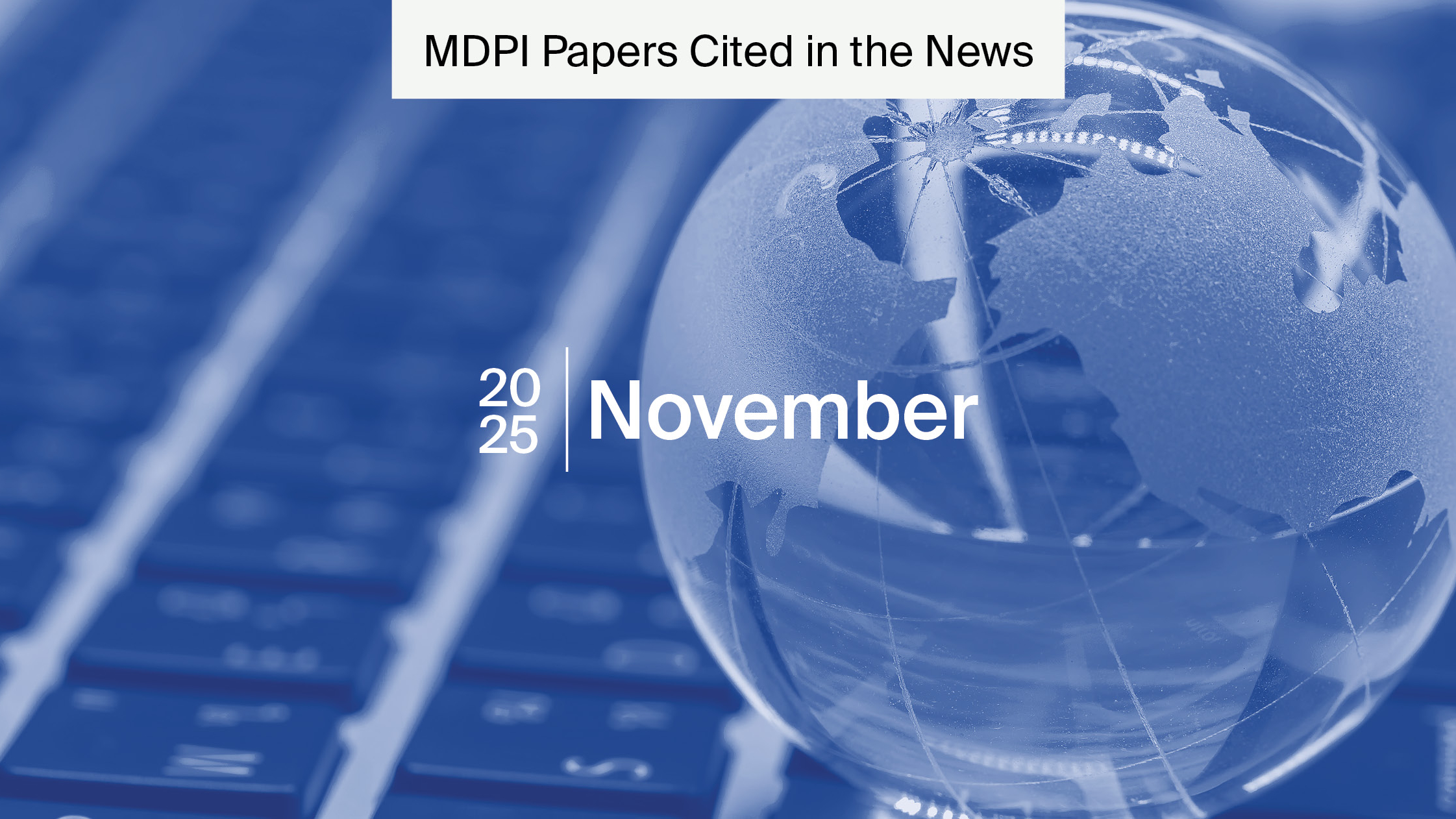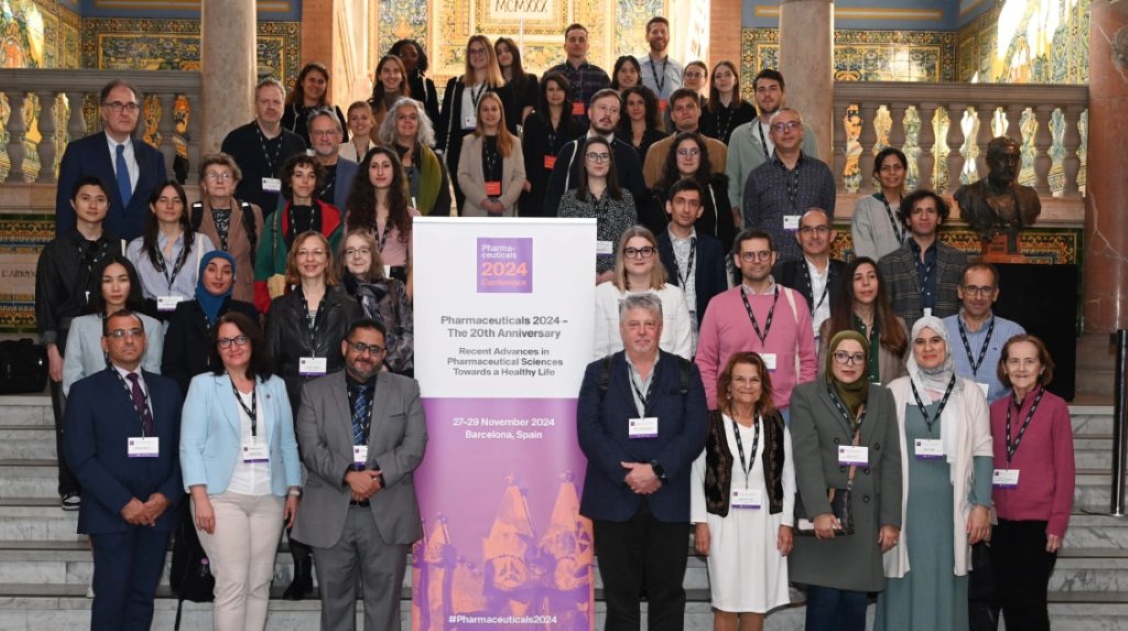
Celebrating Advances in Pharmaceutical Sciences
The Open Access journal Pharmaceuticals recently celebrated its 20th anniversary! It was first published in 2004 and has been involved in the dissemination of information in the pharmaceuticals field since then in various forms.
Pharmaceuticals hosted the conference Pharmaceuticals 2024 to commemorate the journal’s contribution to the Open Access publishing industry. The conference also demonstrated the importance of discovering new molecules and their physical properties and igniting research that aims to find new molecular entities that can improve human health and quality of life.
The conference was held in beautiful Barcelona, Spain, over 3 days. There was a wide range of speakers in attendance who presented on a variety of topics. This included speakers Prof. Dr. Jesús Jiménez-Barbero and Prof. Dr. Svetlana Tsogoeva. The conference was also attended by a variety of chairs, including Prof. Dr. Amelia Pilar Rauter.
Here, we look at their important research and its impact on the pharmaceutical and healthcare industry.
Prof. Dr. Jesús Jiménez-Barbero’s: molecular mechanisms

Professor Dr. Jesús Jiménez-Barbero is the scientific director of CIC bioGune Center for Cooperative Research in Biosciences. CIC bioGune is a member of the Basque Research and Technology Alliance (BRTA). It is one of Spain’s leading research institutions, recognised globally for its contributions to Life Sciences.
Professor Dr. Jesús Jiménez-Barbero’s research specialises in exploring the molecular mechanisms that underlie the recognition of various ligands, primaily glycans, biological receptors associated with biomedical phenomena such as cancer and infectious diseases.
Investigating the interactions of glycans
Glycans are carbohydrates that are widely distributed in all living things. They are a source of energy storage, in the form of glucose polymers, for humans and a major component of plant cell walls, primarily as cellulose.
Additionally, glycans play a crucial role in many physiopathological processes and changes in structure can influence disease progression. These processes include cell differentiation, adhesion, motility, signal transduction, host–pathogen interactions, tumour cell invasion, and metastasis development.
Changes in the glycan structure are associated with cancer progression and have become known as markers of tumour growth. Additionally, they can also be utilised by pathogens to establish infection. Pathogens can use glycans to shield them from the immune system as well as food sources.
Professor Dr. Jesús Jiménez-Barbero’s laboratory uses a range of techniques to study the interactions of glycans, including chemical synthesis, protein biochemistry, molecular biology, biophysics, molecular modelling, and structural biology techniques, emphasising nuclear magnetic resonance (NMR) spectroscopy.
“We are living for longer. Humans and mankind are continuously evolving. We are seeing an increase in new diseases because of ageing, and we have to find new ways to combat them. We have to be able to produce new pharmaceuticals and molecules to help us evolve more positively, not only to expand life but to improve the quality of life”. – Professor Dr. Jesús Jiménez-Barbero, speaking at the conference.
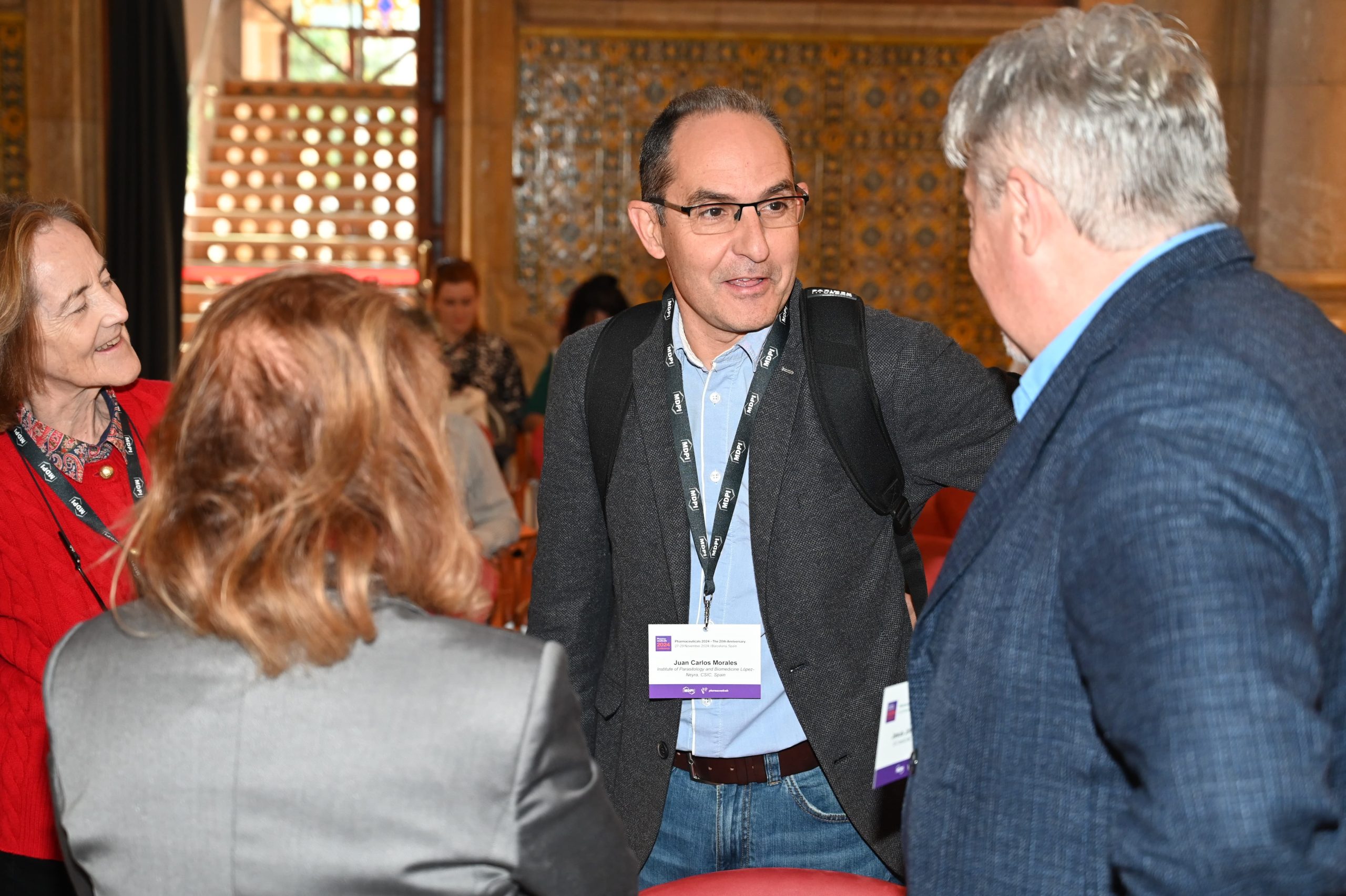
Commenting on the Conference Professor Dr. Jesús Jiménez-Barbero noted that:
“Conferences are very important to meet people personally; contact with people is always the most important thing.”
Prof. Dr. Amelia Pilar Rauter: drug discovery
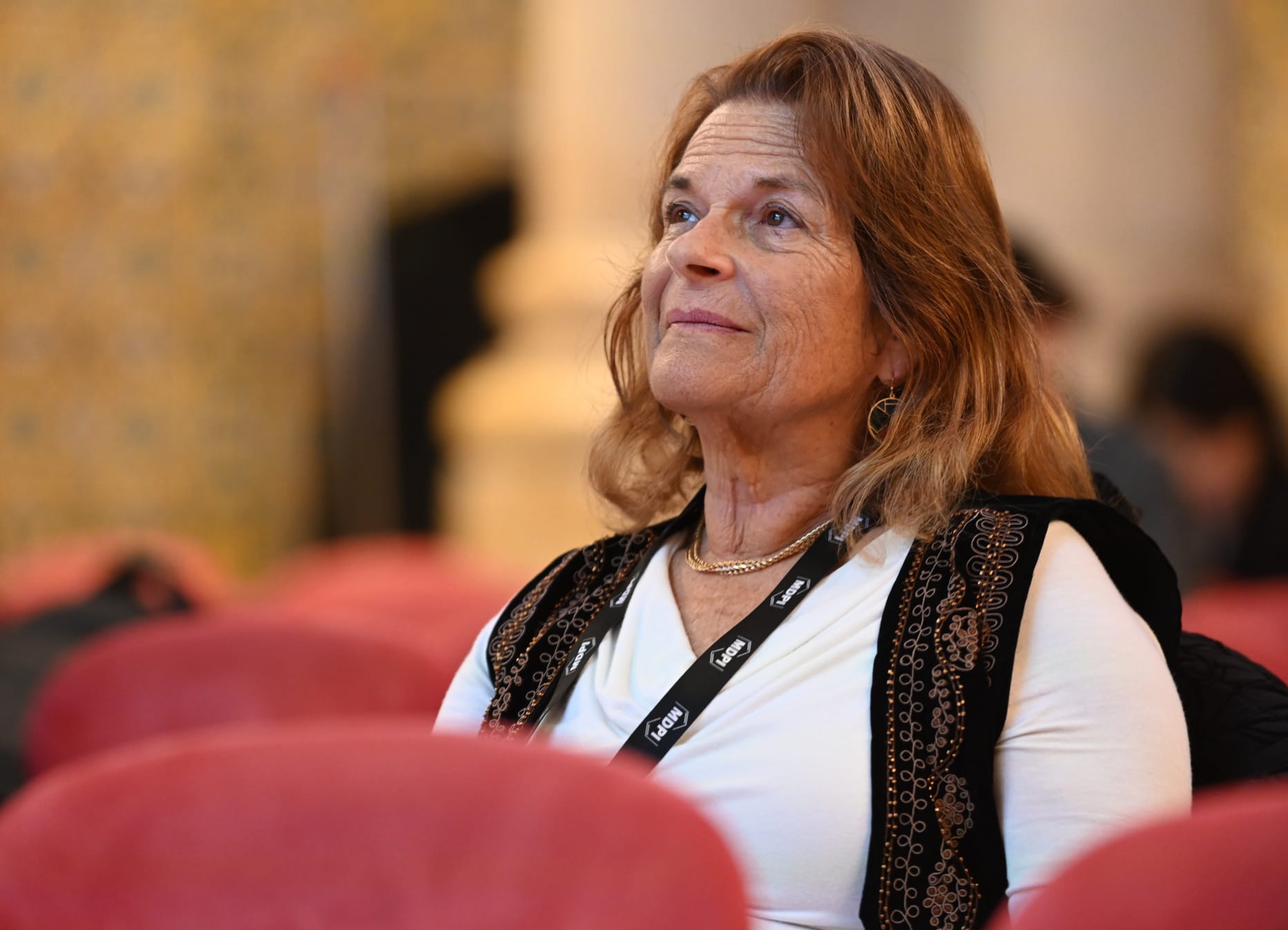
Professor Dr. Amelia Pilar Rauter is a Professor at Faculdade de Ciências, Universidade de Lisboa (FCUL). In addition, she has also been the Editor-in-Chief of Open Access journal Pharmaceuticals since 2022 and oversees the management and publication of the journal. Additionally, she also served as a chair for the Pharmaceuticals 2024 conference.
Professor Dr. Amelia Pilar Rauter has an impressive portfolio of work; her research focuses on the design and synthesis of new carbohydrate-related small molecules for the prevention or treatment of diabetes, neurodegenerative diseases, and infection.
Moreover, her work also involves the isolation and structure elucidation of active principles from plants/marine resources. This research led to the discovery of lead molecules for diabetes, cancer, and degenerative diseases, in particular Alzheimer’s and prion diseases and infections.
New approaches to treating Alzheimer’s disease
Professor Dr. Amelia Pilar Rauter’s work on treating Alzheimer’s disease focuses on investigating new approaches and targets to improve overall drug discovery for the disease.
Research on Alzheimer’s treatment mostly focuses on a known hallmark of the disease, amyloid-beta (Aβ). It is also considered the main catalyst of Alzheimer’s pathogenesis and progression. Amyloid-beta is a part of broken-down fragments of a larger protein known as amyloid precursor protein. The protein is chemically sticky and folds into a β-pleated shape andcan then stack on top of each other, forming plaques. These plaques are a main characteristic of Alzheimer’s and are known to block cell–cell interactions and communications in the brain.
The new targets proposed by Professor Dr. Amelia Pilar Rauter and her team include binding compounds associated with amyloid β oligomers, this is the most toxic form of amyloid-beta. The team focus on how binding affects its binding partners and other related signalling pathways.
Speaking about the conference, she explained that she hoped that the conference would inspire collaborations for future drug discoveries.
“We have a broad variety of topics, covering several areas of research, but we are specific in many of them; we have experts in many of the topics. We cover pain, neurodegeneration, and inflammation, which are really important for the world, as we have pain and inflammation in almost all diseases.”- Professor Dr. Amelia Pilar Rauter, speaking at the conference.
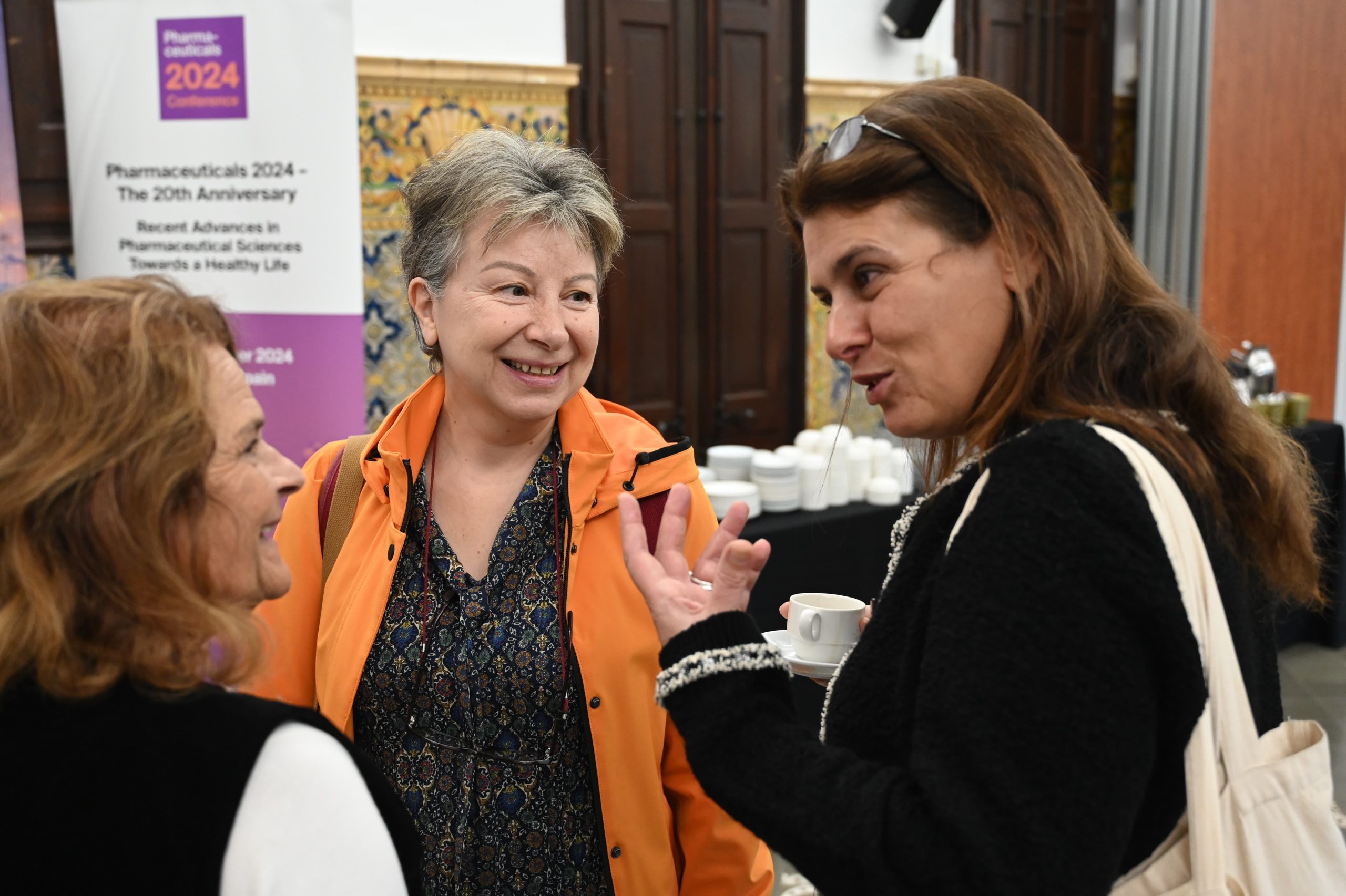
Professor Dr. Amelia Pilar Rauter, when asked about the success of the conference, continued:
“We have had very good people and very good lecturers. We have very good lecturers from young researchers as well; 85% of our presentations are given by young researchers because we want to give them the floor, to give them the opportunity to show off what they do, to discuss with them, and with the experts and colleagues, networking should always be established; healthy networking should always be established in every meeting”.
Prof. Dr. Svetlana Tsogoeva: drug resistance
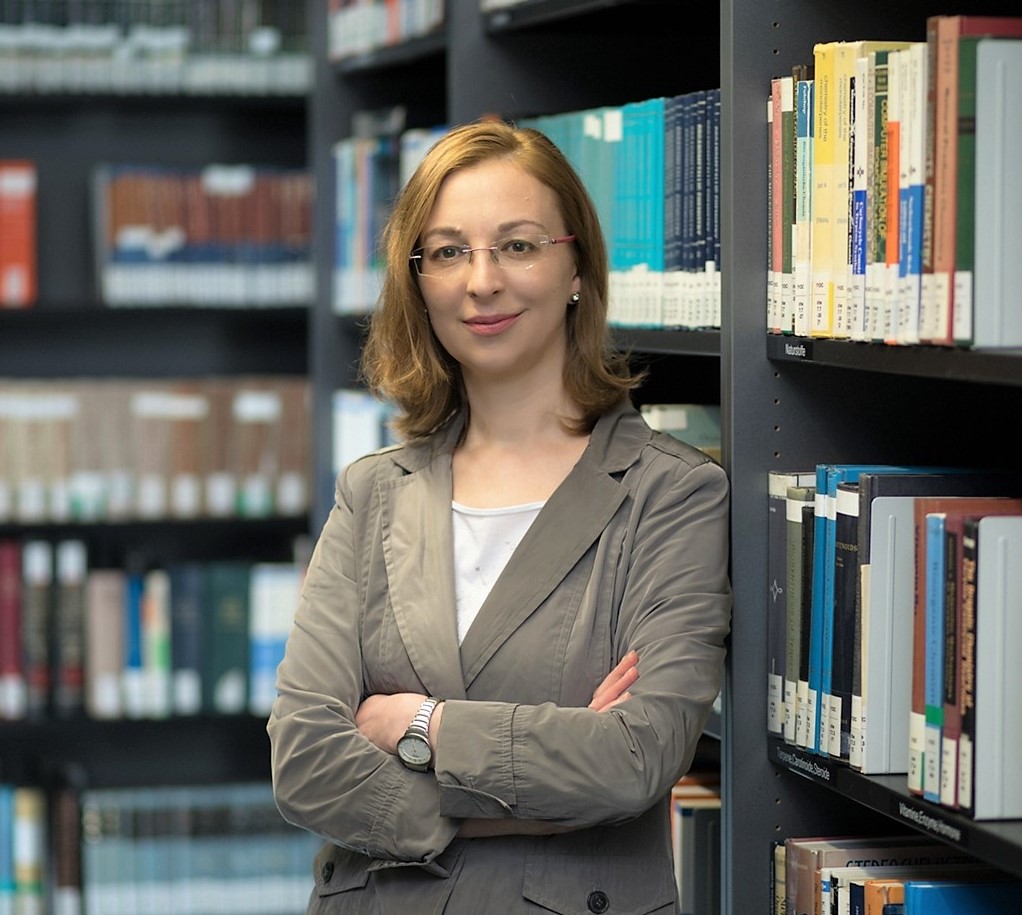
Prof. Dr. Svetlana Tsogoeva is a Professor of organic chemistry at Friedrich-Alexander-Universität Erlangen-Nürnberg. Her research covers organic synthesis, catalysis and medicinal chemistry. Moreover, her current research is focused on asymmetric organocatalysis, one-pot & domino processes, deracemization of chiral bioactive compounds by autocatalytic crystallisation, synthesis of artemisinin-derived hybrids for medicinal chemistry, and chemistry in live cells.
Artemisinin-derived hybrids and drug resistance
Artemisinin is a natural compound; it is the most significant drug to combat malaria. However, the parasites which spread malaria are becoming increasingly resistant to the drug. It is fast-acting and one of the most important drugs in the treatment of severe and mild malaria.
Moreover, finding artemisinin alternatives is crucial to continue the treatment of the disease as well as to support the movement towards the eradication of malaria.
Artemisinin and its derivatives have demonstrated selective anticancer propeties, but there are some limitations with the compound, such as poor stability, water solubility, and limited bioavailability. However, artemisinin has shown promise in the treatment of a variety of cancers, including breast cancer, where it’s shown to havethe potential to suppress cell growth, reduce angiogenesis-related factors, and induce ferroptosis.
Prof. Dr. Svetlana Tsogoeva explained her research topic further when asked at the conference; she noted that:
“The main topic in my group is asymmetric organocatalysis, or the development of catalytic approaches towards heterocyclic compounds, and of course, we are really interested in the application of our compounds for drug discovery and development because there is a demand for new drugs because there are rare diseases still and chronic diseases and the development of drug resistances and new diseases, so combatting diseases is a global challenge, and we need chemical solutions, so as chemists we develop drug entities, so this is actually the inspiration to contribute to the solution of this global challenge.”
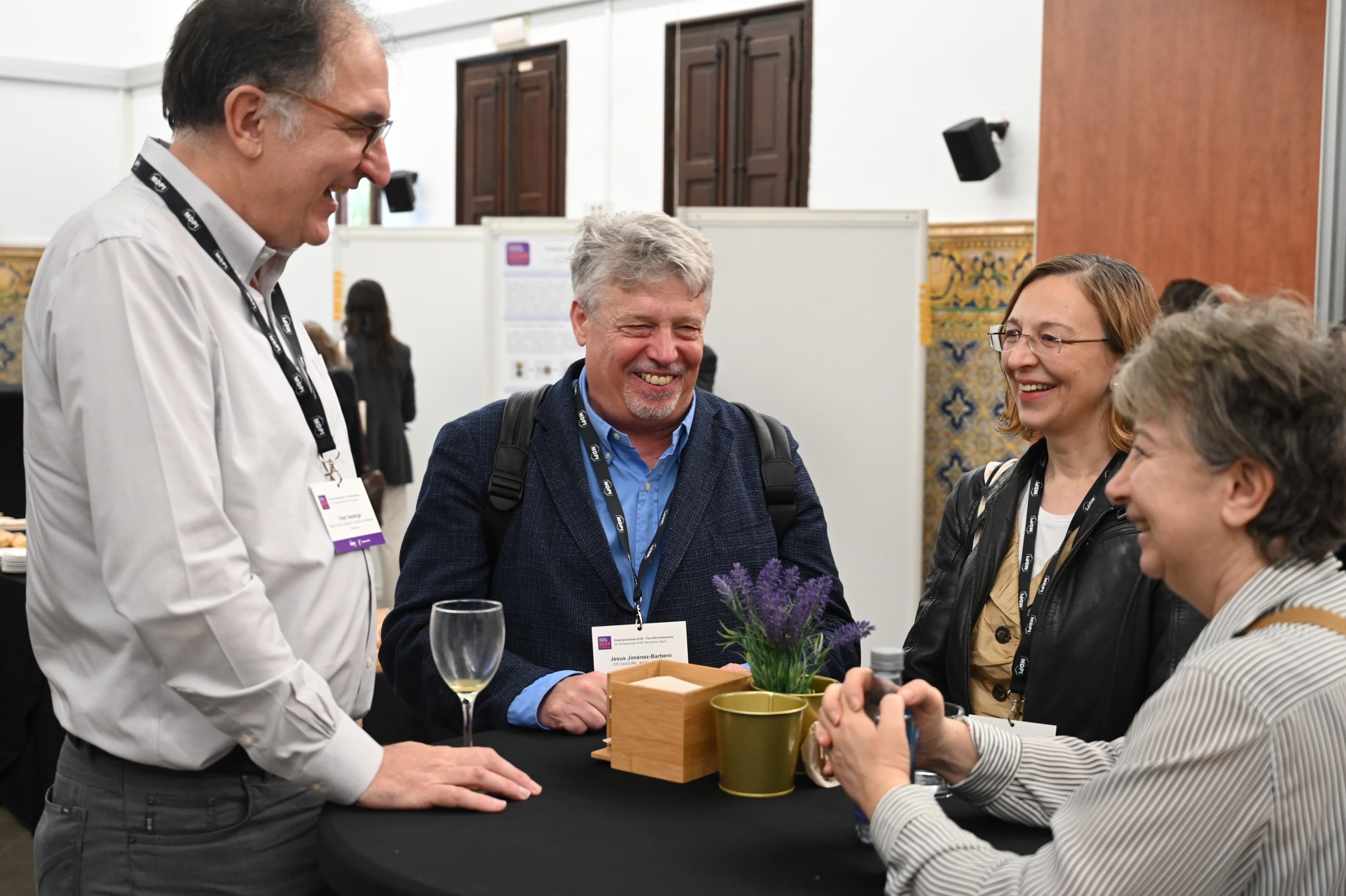
When asked about the success of the conference, she explained:
“This conference particularly brought together two generations of experts in the field and also young researchers, and it’s a nice platform for networking and new collaborations.”
Future conferences
The Pharmaceuticals 2024 – Recent Advances in Pharmaceutical Sciences Towards a Healthy Life conference brought together experts and new researchers forging links and new opportunities for collaboration. The conference inspired new conversations and relationships to develop, working towards the collaborative goal of providing new medicines and molecules for an ever-evolving world.
If you would like to find out more about attending or participating in future pharmaceutical conferences for 2025, please see here.
Or if you would like to read more about the research presented at the conference, please see the Special Issue: Pharmaceuticals 2024 – Recent Advances in Pharmaceutical Sciences Towards a Healthy Future here.







